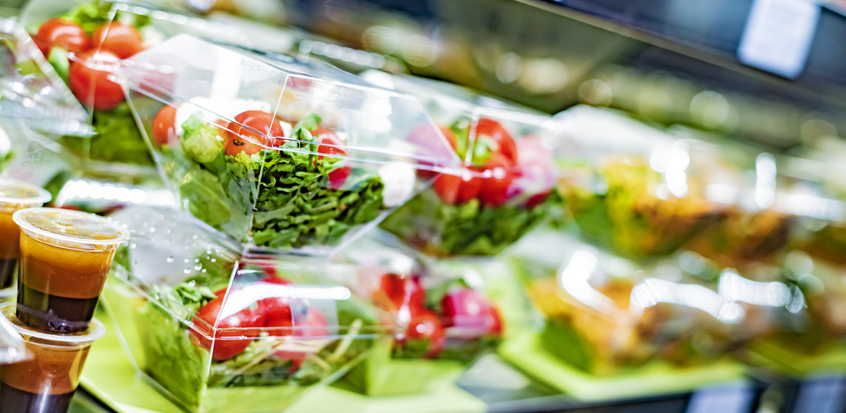Consumers are committed to buying takeout-prepared foods from retailers and restaurants, despite rising prices, according to a report from Good Natured Products, a Vancouver, British Columbia-based maker of plant-based takeout packaging.
Nearly three-quarters of consumers surveyed—72 percent—said they have maintained or increased their purchases of ready-to-eat meals, meal kits, and takeout food since the start of 2023. One in five respondents said they decreased their purchases of such foods this year.
The survey, conducted in July, polled 1,000 consumers across the U.S.
Meanwhile, a report from British research firm IGD forecast that the takeout market in the U.K. would increase 6.2 percent in 2023, compared with 2022 levels, driven entirely by inflation. Real growth, the report said, would decline 3.3 percent, as consumers decrease purchase frequency and trade down to lower-priced options. The report forecasted a return to real growth in takeout sales from 2024 through 2026 as both purchase frequency and spending increase.
In the Good Natured Products report on the U.S. market, 70 percent of survey respondents cited convenience as the top reason they buy ready-to-eat meals from grocery stores, followed by 40 percent who cited time savings, 21 percent who cited cost savings compared with buying groceries, and 19 percent who said they do so because it gives them the ability to buy meals in smaller portion sizes.
“Convenience eating has always been a trend, but what’s changed is how people are consuming takeout meals,” said Paul Antoniadas, CEO of Good Natured Products. “What was once grabbing a pizza and bringing it home has turned into salad bars and grab-and-go lunches from the grocery store, takeout, and quick service meal spots.”
The research found that 69 percent of consumers are buying prepared foods because cooking and meal preparation take time away from their ability to spend quality time with family and friends or participate in leisure activities. Another 30 percent said they are prioritizing work, sleep, and household chores with any free time that they have.
Consumers who are buying prepared foods in the grocery store are primarily looking for additional side dishes—cited by 56 percent of respondents—and meals for one, also cited by 56 percent of respondents (multiple responses were allowed). Thirty-five percent said they buy prepared desserts and 32 percent said they buy prepared appetizers.
Packaging concerns
When it comes to packaging for takeout food, 86 percent of consumers said they prefer clear packaging and would be more likely to buy the product if they can see what it looks like first, according to the Good Natured Products survey. Consumers are also concerned about the freshness of the product inside, cited by 73 percent of survey respondents.
“The key factors consumers keep in mind when shopping for food are visibility and freshness,” said Antoniadas.
Other packaging concerns included tampering, cited by 55 percent of respondents; temperature control, cited by 49 percent, and chemicals in the packaging, cited by 41 percent.
Over three-fourths of consumers said that eco-friendly packaging is important to them and that they usually consider a product’s packaging when shopping. Forty-three percent said it is the retailer’s responsibility to provide environmentally friendly packaging to help reduce the impact of climate change.
Consumers are confused when it comes to how to dispose of takeout food packaging, however. About a third of respondents said they have good intentions about disposing of or recycling their takeout food packaging, but they don’t know the proper procedures for doing so.
“More education alone will not solve this confusion unless there’s consistency in waste management practices on a broader scale,” the report concludes.
Research from McKinsey & Co. earlier this year supported this consumer uncertainty. In its survey of U.S. consumers on packaging, McKinsey found that two-thirds of respondents said they had little to no confidence that they know which packaging is recyclable. The survey also found that 39 percent of consumers said that the environmental impact of packaging is extremely or very important to their purchasing decisions.
Related: Study: Gen Z Has Complicated Relationship With Food; Grocers Compete for Foodservice Dollars

